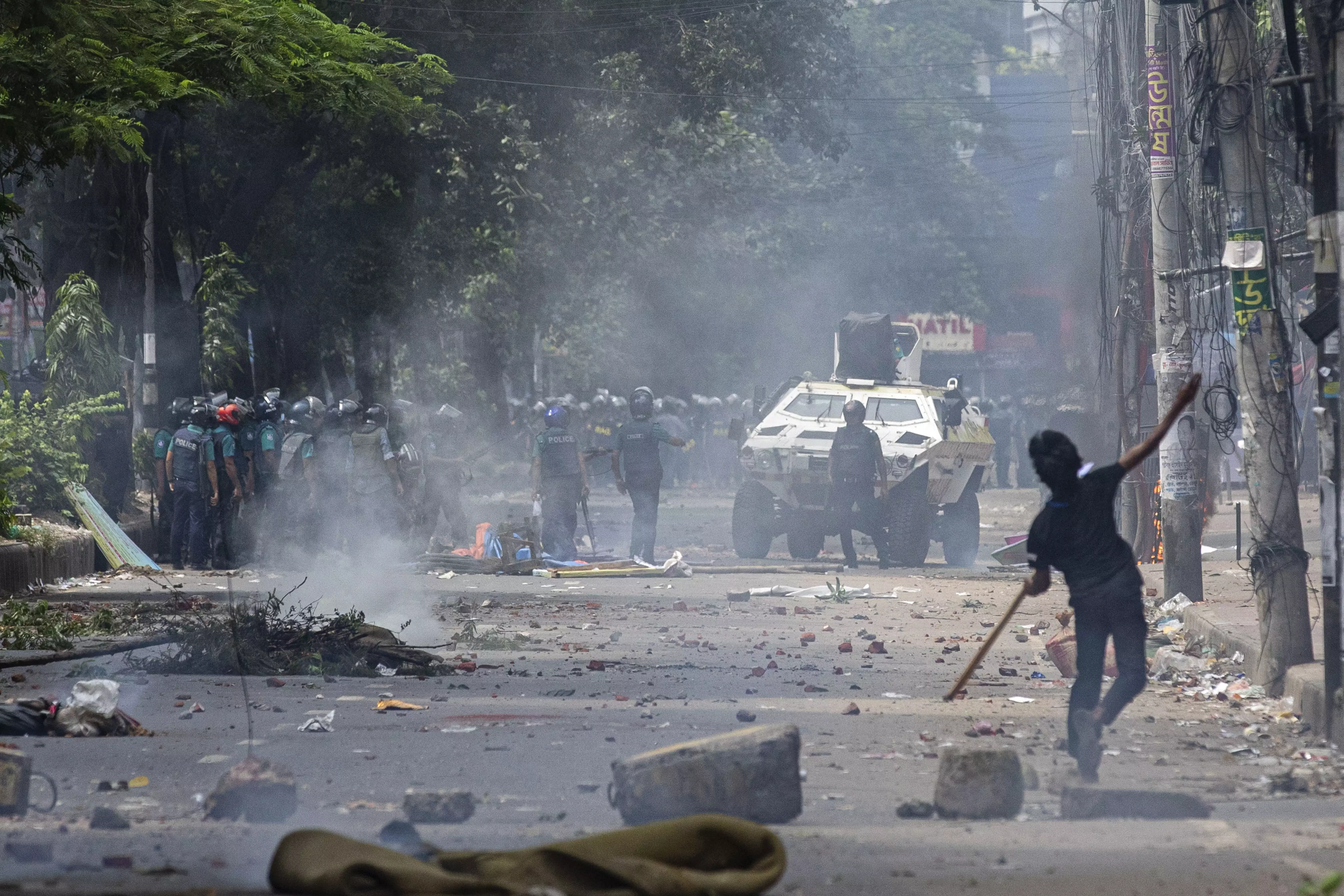
Who were ‘Razakars’ and why are they back in Bangladesh’s political discourse?
The Razakars were a paramilitary force in East Pakistani that was opposed to the creation of Bangladesh as a sovereign nation during its 1971 War of Independence

Violence in Bangladesh has left over 130 dead as students are seeking reforms to a quota system governing the allocation of government jobs in the country, though the Supreme Court has stepped in, ordering that the veterans’ quota be slashed to 5%, with 93% of jobs to be allocated on merit. The remaining 2% will be set aside for members of ethnic minorities and transgender and disabled people.
The protesters were resenting the controversial quota system that reserves up to 30% of government jobs for family members of veterans who fought in Bangladesh's 1971 War of independence against Pakistan.
The protests took an ugly turn after Prime Minister Sheikh Hasina’s controversial remarks in which she dubbed the protesters as “Razakars”. A visibly upset Hasina said, “If not the grandchildren of the freedom fighters, then who will get quota benefits? The grandchildren of the ‘Razakars’? This is my question. I want to ask the people of the nation. If the protesters don’t comply, I can do nothing. They can continue their protest. If protesters damage properties or attack cops, the law will take its course. We can’t help.”
Who were the ‘Razakars’?
Historically loaded and carrying a negative connotation, “Razakar” means “volunteer” or “helper” in Persian and Urdu.
The “Razakars” were a paramilitary force in East Pakistan (now Bangladesh) during the Bangladesh Liberation War of 1971. They were formed by the Pakistan Army and primarily consisted of local collaborators who opposed the independence movement.
In May 1971, Maulana Abul Kalam Muhammad Yusuf, a senior member of the Jamaat-e-Islami, formed the first set of “Razakars” in East Pakistan's Khulna. Armed “Razakars” comprised migrated people and socio-economically deprived poor people who helped the Pakistan Army's campaign to suppress pro-independence freedom fighters and terrorise civilians during the war.
The "Razakars", along with other militia groups, were involved in atrocities, including mass killings, rapes and other human rights abuses against Bengali civilians who supported the independence of Bangladesh.
In modern Bangladesh, the worst form of slur and indignity is to be labelled as a “Razakar”.
International Crimes Tribunal
In 2010, the Sheikh Hasina government constituted an International Crimes Tribunal to prosecute those accused of war crimes during the 1971 conflict.
Yusuf was arrested in 2013 and was charged with crimes against humanity. He died a year later in detention due to a cardiac arrest.
In December 2019, her government published a list of 10,789 “Razakars” who collaborated with the Pakistani forces during the country's Liberation War in 1971. This list included prominent figures and was intended to ensure that future generations understand the historical context of their actions.
This move was part of her strategy to address historical injustices and was widely seen as a fulfilment of her party's electoral promises. The tribunal has since convicted several individuals, predominantly from the now-banned Jamaat-e-Islami party.

